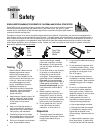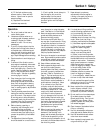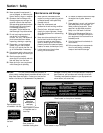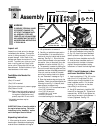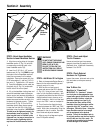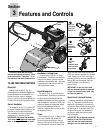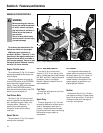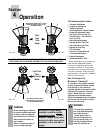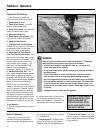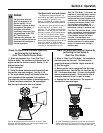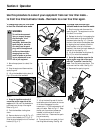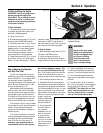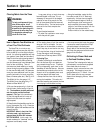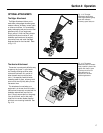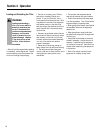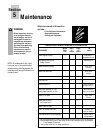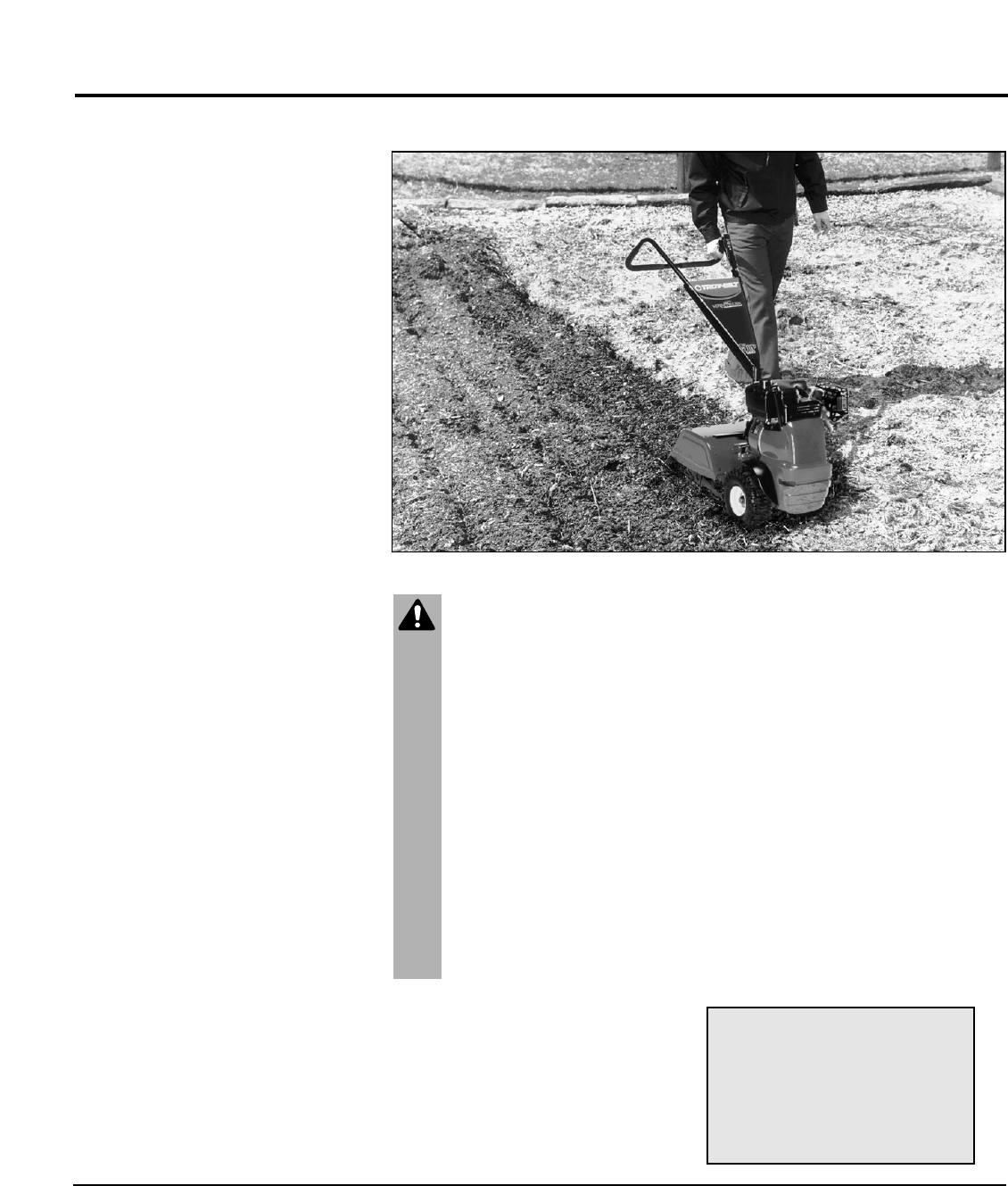
12
Section 4: Operation
Preparation For Starting
Make the following checks and
adjustments before starting the engine.
1. Check Engine Oil Level.
2. Check the Air Cleaner. It must be
securely assembled and clean.
3. Check Safety Guards. All guards and
covers must be securely in place.
4. Attach Spark Plug Wire.
5. Check Engine Cooling System. Cool-
ing fins and air intake must be clean.
6. Adjust Handlebar Height.
7. Test Operational Interlock System.
Perform this test in both front tine cultiva-
tor mode and in rear tine tiller mode.
Refer to Pg. 13 for full instructions.
8. Select Rear Tine Tiller Mode or
Front Tine Tiller/Cultivator Mode. If you
select rear tine tiller mode, check to see
that the wheels do not
“Freewheel.” Roll
the tiller forward several inches to verify
that the wheels are fully engaged.
If you
select front tine tiller/cultivator mode,
check to see that the wheels do
“Freewheel.” See Pg. 14 for instructions.
8. Add Gasoline to Fuel Tank. Use
fresh, clean unleaded automotive gasoline.
Either regular or premium grades are
acceptable. DO NOT MIX OIL WITH GAS-
OLINE. See the separate Engine Operator’s
Manual for all fuel recommendations.
NOTE: Do not use fuel containing
methanol (wood alcohol). Fuel containing
up to 10% ethanol or “Gasohol” may be
used but requires special care when the
engine is not used for extended periods.
Use clean fuel and store in an approved,
covered container. Use a clean fill funnel.
Never use “stale” gasoline left over from
last season or if stored for long periods.
To Add Gasoline:
1. Clean the fuel cap area before removing
the fuel cap.
2. Using a clean funnel, fill tank to within
1/2" of the top to prevent spills and to
allow for fuel expansion. Replace the fuel
cap securely before starting the engine.
WARNING
Gasoline is highly flammable and its vapors are explosive. Follow these
safety practices to help prevent injury from fire or explosion:
• Never fill tank if engine is running or hot from use. Let engine and
muffler cool down before refueling.
• Do not permit open flames, sparks, matches or any smoking materials in
the refueling area.
• Fill fuel tank outdoors in a well-ventilated area. Wipe away any fuel
spills and move tiller away from fumes before starting the engine.
• Use only an approved fuel container and lock it safely away from children.
• Store fuel and the equipment in a well-ventilated area. Do not store fuel
or the tiller where fuel vapors may reach an open flame or spark, or an
ignition source (a hot water heater, furnace, clothes dryer, electric motor,
or the like).
• Let engine cool down before storing equipment.
Fig. 4-3
Break-In Operation
During the first few hours of new
operation, the following maintenance
steps are required. For detailed informa-
tion on these procedures, refer to Section
5— “Maintenance.”
1. Change Engine Oil. Change oil after
the first two (2) hours of new operation.
Thereafter, every fifty (50) operating hours.
2. Check Drive Belt Tension. Due to the
new belt “seating in,” a tension adjustment
may be needed after the first 2-to-3 hours
of new operation.
IMPORTANT: TO AVOID DAMAGE
TO THE ENGINE RECOIL COVER,
CONTROL CABLE AND THE
INTERLOCK SYSTEM, NEVER
SWIVEL HANDLEBAR ON FUEL
TANK SIDE OF ENGINE.



